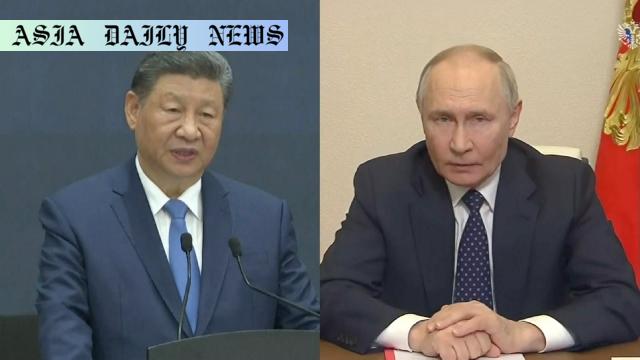Xi Jinping strengthens China-Russia ties at World War II victory celebrations in Russia.

Xi Jinping’s Historic Visit to Russia: Strengthening Bilateral Relations
The upcoming four-day visit of Chinese President Xi Jinping to Russia marks a significant juncture in international diplomacy. Arriving in Russia on Wednesday, Xi will participate in the 80th anniversary of the former Soviet Union’s triumph over Nazi Germany during World War II. This event not only celebrates significant historical achievements but also cements the longstanding alliance between China and Russia. With increasing tensions globally and regional unrest, this visit reflects both nations’ priorities in advocating for a multipolar world order.
The Chinese Foreign Ministry has emphasized that this visit underscores the unwavering stance of both countries against unilateralism and economic bullying. They advocate for a world where globalization thrives inclusively, benefitting all parties. This visit is also a response to escalating trade friction, particularly with the United States, as Xi strives to navigate China’s global strategies amidst intensifying challenges.
A Focus on Ukraine Amid Diplomatic Talks
Amidst the pomp and celebration, the visit also includes strategic bilateral talks between President Xi and his Russian counterpart, Vladimir Putin. Key topics of discussion are expected to include the gripping situation in Ukraine. It is noted that the United States has taken initiatives to mediate peace in the region, presenting an opportunity for China and Russia to articulate a unified perspective on global matters.
This marks the first summit between the two leaders since their meeting during the BRICS summit held in October. This extended interaction will likely strengthen their alliance while propelling both nations to intensify collaboration on diverse global platforms.
China and Russia’s Shared Vision for Global Stability
Beyond its immediate diplomatic implications, the visit signals the profound alignment of their geopolitical goals. Both China and Russia are deeply aligned in creating a stable multipolar global order where power is redistributed equitably. This collaboration focuses on minimizing hegemonic endeavors by any single nation or alliance.
As President Xi Jinping partakes in this commemoration, his presence sends a strong message regarding China’s vision for strengthened ties and collective problem-solving on global concerns, particularly amidst strained relations with the West.
Commentary
Commentary: A New Era of Geopolitical Alliances
President Xi Jinping’s visit to Russia underscores the increasingly strategic relationship between two of the world’s most influential nations. This visit comes at a time when global tensions are at an all-time high, with economic, military, and political issues creating fractures among traditional allies. Against this backdrop, the China-Russia axis emerges as a counterbalance to Western powers, promoting a narrative of shared sovereignty and multipolar cooperation.
The World War II victory celebration serves as more than a historic commemoration; it reflects a mutual dedication to positioning themselves as global leaders of peace and stability. By aligning themselves on crucial geopolitical issues like the Ukraine crisis, China and Russia potentially leverage their collective influence to broker solutions, signaling a shift in traditional global hegemony. Xi Jinping’s diplomacy reflects a thoughtful balancing act between reinforcing historical bonds and presenting a superpower alternative to Western influence.
The Broader Significance of Xi’s Visit
China’s participation in the Victory Day celebrations transcends mere symbolism; it is a powerful reiteration of shared values and historical alignment. Given the rising trade tensions between the US and China, this joint effort reveals a calculated move to concentrate resources and alliances elsewhere—a move that could redefine the global balance of power. Additionally, this visit fortifies ideological solidarity against unilateral approaches and neo-protectionist policies promoted by certain global players.
In conclusion, Xi Jinping’s engagement in Russia epitomizes the evolving power dynamics of the 21st century. Nations across the globe will closely monitor this exchange, reassessing their own alliances and positioning in an increasingly multipolar geopolitical landscape.


